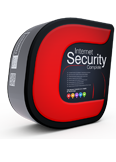Ways to prevent computer viruses.
In this world of ubiquitous computers and persistent threats from hackers, protecting your computer is a must. The key pathway through which malware attacks the system is the Internet and its popular service, the Web.

There are numerous ways to protect and remove malware from our computers. No one method is enough to ensure your computer is secure. The more layers of defense, the harder for hackers to use your computer.
5 Steps to Protect Your Computer
- Install Firewall
- Install Antivirus Software
- Install Anti-Spyware Software
- Use Complex and Secure Passwords
- Check on the Security Settings of the Browser

Install Firewall
A firewall enacts the role of a security guard. There are of two types of firewalls: a software firewall and hardware firewall. Each serves similar, but different purposes. A firewall is the first step to provide security to the computer. It creates a barrier between the computer and any unauthorized program trying to come in through the Internet. If you are using a system at home, turn on the firewall permanently. It makes you aware if there are any unauthorized efforts to use your system.

Install Antivirus Software:
Antivirus is one other means to protect the computer. It is software that helps to protect the computer from any unauthorized code or software that creates a threat to the system. Unauthorized software includes viruses, keyloggers, trojans etc. This might slow down the processing speed of your computer, delete important files and access personal information. Even if your system is virus free, you must install an antivirus software to prevent the system from further attack of virus.
Antivirus software plays a major role in real time protection, its added advantage of detecting threats helps computer and the information in it to be safe. Some advanced antivirus programs provide automatic updates, this further helps to protect the PC from newly created viruses.
Antivirus for Windows 8 software may include advanced features such as email protection, blocking of pop-ups and identity theft.
Install Anti-Spyware Software:

Spyware is a software program that collects personal information or information about an organization without their approval. This information is redirected to a third party website. Spyware are designed in such a way that they are not easy to be removed. Anti-Spyware software is solely dedicated to combat spyware. Similar to antivirus software, anti-spyware software offers real time protection. It scans all the incoming information and helps in blocking the threat once detected.Comodo Free Antivirus comes with spyware protection built in.
Use Complex and Secure Passwords:

The first line of defence in maintaining system security is to have strong and complex passwords. Complex passwords are difficult for the hackers to find. Use a password that is at least 8 characters in length and include a combination of numbers, letters that are both upper and lower case and a special character. Hackers use certain tools to break easy passwords in few minutes. One recent study showed that a 6 character password with all lower case letters can be broken in under 6 minutes!
Check on the Security Settings of the Browser:
Browsers have various security and privacy settings that you should review and set to the level you desire. Recent browsers give you ability to tell web sites to not track your movements, increasing your privacy and security.
WAYS TO PROTECT YOUR COMPUTER FROM VIRUSES
It’s something we all hope to avoid but the truth of the matter is that we can’t dodge it forever. Some of us are the unfortunate acquirers of computer viruses. Although there are always new viruses coming out, Top Choice Reviews has produced a list of 11 ways to prevent computer viruses.
INSTALL AN ANTI-VIRUS PROGRAM
Whether you are connecting to the internet or not, having reliable protection is the route to go. Anti-virus programs are a minimal investment and are worth the dollars so as soon as you power up that computer, make sure you are protected!
INSTALL ANTI-SPYWARE AND ANTI-MALWARE PROGRAMS
Many of these programs are free and prevent viruses from doing any damage on your computer. They require continuous running and updating but when used correctly, they serve their purpose.
AVOID SUSPICIOUS WEBSITES
A lot of times websites will notify you if you are about to enter a website that attempts to install or run a program on your computer but not always. Avoid websites such as those.
NEVER OPEN EMAIL ATTACHMENTS WITHOUT SCREENING THEM
The most common way viruses are spread remains to be through email. Make sure you use an email provider that requires all attachments to be scanned prior to opening, to ensure your computer doesn’t get a virus.
SET UP AUTOMATIC SCANS
Setting up scans to run on your computer daily or weekly is a good idea to get rid of any viruses. This keeps your computer updated and clear of issues.
WATCH YOUR DOWNLOADS
We understand that downloading files from the internet such as music and movies is what so many of us do, but it also gets so many of us in trouble. Big files like those are easy to sneak some trouble into so be aware of what you are downloading.
UPDATE, UPDATE, UPDATE!
Microsoft Windows ‘Critical Update’ is one example of staying ahead of all the hackers out there. Critical Update is an entire branch of Microsoft that is dedicated to keeping computers free is viruses. Always keep your system updated
ALWAYS BE IN THE KNOW
Whether you are a computer fanatic or you just use yours casually, always know what the latest viruses are and how they will affect your computer. This will prepare you if something happens so you can fix the problem sooner.
AVOID CRACKED SOFTWARE
Everyone knows that you can download illegal or ‘cracked’ software online that seems to be easier on the wallet but in reality downloading those programs hurt you. They subject your computer to hard-to-detect bugs and will end up causing you more problems.
INSTALL A FIREWALL
A firewall is a program that screens incoming internet and network traffic. Along with your virus program, it can help prevent unauthorized access to your computer.
BE PREPARED
If you get wind of a virus that is going around like wildfire than be sure to be on high alert. Don’t accept any downloads and be extra cautious when opening emails and files.
This list should help you in preparing for any computer viruses that could come your way. Remember to always be cautious and smart when using your computer!


No comments